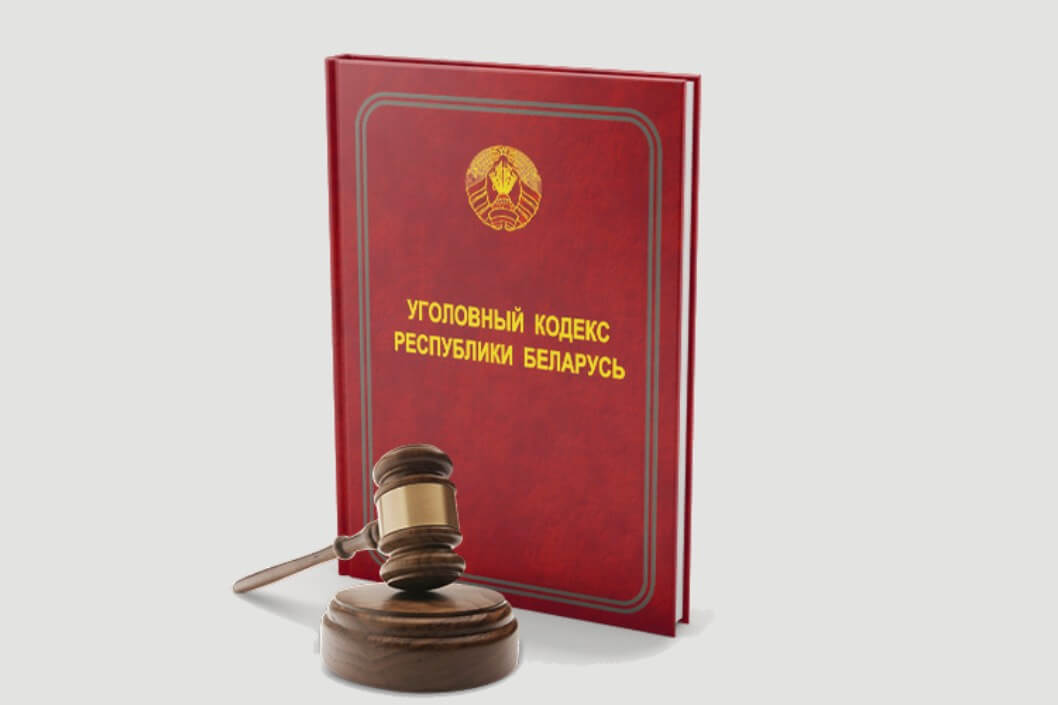Criminal Code changes pave the way for large-scale reprisals, lawyer says

January 13, Pozirk. Pavieł Sapiełka, a lawyer with the Viasna Human Rights Center, has expressed concern about new changes to the Criminal Code that passed the House of Representatives last week, noting that the legislation paves the way for large-scale reprisals against critics.
In particular, Sapiełka, a former political prisoner, pointed to a significant expansion of articles that can be used to prosecute Belarusians for crimes allegedly committed abroad.
The list includes the following articles:
• 130 – incitement to hatred
• 130-1 – justification of Nazism
• 130-2 – denial of the genocide against Belarusians
• 289 – act of terrorism
• 289-1 – propaganda of terrorism
• 290 – threat to commit an act of terrorism
• 290-1 – terrorism funding
• 290-2 – supporting terrorist activity
• 290-3 – undergoing training for terrorist activity
• 290-4 – forming an organization for terrorist activity
• 290-5 – organizing the activities of a terrorist group
• 367 – defamation of the head of state
• 369-1 – discrediting Belarus
• 370 – insulting state symbols
• 373 – intentional disclosure of state secrets
• 374 – disclosure of state secrets through negligence
Sapiełka said judges had sentenced more than 3,500 people in Belarus on these charges.
He welcomed the proposal to stop imposing prison sentences on “women and single men raising children under 14 years of age or children with disabilities, people with Group I disabilities who have committed a non-violent crime for the first time that does not pose a great public danger or a less serious crime that did not result in the death of a person through negligence or serious bodily harm.”
However, the proposal would not apply to political activists persecuted on extremism-related charges.
He went on to say that the bill would authorize police to impose restrictions on those pardoned and require those under preventive supervision after prison to work or study.
The bill includes amendments to the Criminal, Criminal Procedure and Penal Codes, the Code of Administrative Offenses, and the Procedure Code for Administrative Offenses.
- Elections, PoliticsEurope's major party dismisses Belarus' election as farceThe material is available only to POZIRK+
- Elections, PoliticsCichanoŭskaja warns Dutch MPs against recognizing ŁukašenkaThe material is available only to POZIRK+
- Elections, PoliticsAnalyst says Łukašenka might “win” with more than 90 percentThe material is available only to POZIRK+
- Elections, PoliticsNew Belarus passport launch timed to coincide with Łukašenka’s electionThe material is available only to POZIRK+
- PoliticsŁukašenka criticizes Erdoğan, tells ambassador to raise issueThe material is available only to POZIRK+
- Elections, PoliticsŁukašenka promises to engage with West in his election manifestoThe material is available only to POZIRK+
- Economy
- PoliticsEight countries join EU sanctions on BelarusThe material is available only to POZIRK+
- EconomyLithuanian lawmakers vote to denounce double tax deal with BelarusThe material is available only to POZIRK+
- SecurityHrodna garrison hosts counter-drone training for officersThe material is available only to POZIRK+
- PoliticsAuthorities reintroduce fees for EU-bound vehiclesThe material is available only to POZIRK+
- Economy
- Politics
- Economy, Germany news
- SecurityBelarusian, Russian officers preparing for major exerciseThe material is available only to POZIRK+
- Elections, Politics
- Politics
- Elections, PoliticsReprisals: intimidation campaign gaining momentum ahead of presidential voteThe material is available only to POZIRK+
- PoliticsAt least 8 arrested returning to Belarus during holiday season – BySolThe material is available only to POZIRK+
- EconomyCentral bank reports 5.5 percent core inflation for DecemberThe material is available only to POZIRK+
- Politics, Society
- Society, SportWorld Curling extends exclusion of Belarusian, Russian teamsThe material is available only to POZIRK+
- SocietyProsecutor demands life sentence for Pole accused of raping Belarusian womanThe material is available only to POZIRK+
- SecurityPolish interior minister rules out checkpoint reopeningThe material is available only to POZIRK+
- Politics
- Economy
- Elections, Politics, SocietyLaw enforcers threaten exiled regime critics in run-up to presidential voteThe material is available only to POZIRK+
- Economy, PoliticsTransport company seeks €15 billion from Lithuania for halting Belarusian potash transit – reportsThe material is available only to POZIRK+
- EconomyBiełstat: consumer prices up 5.2 percent in 2024The material is available only to POZIRK+
- Economy